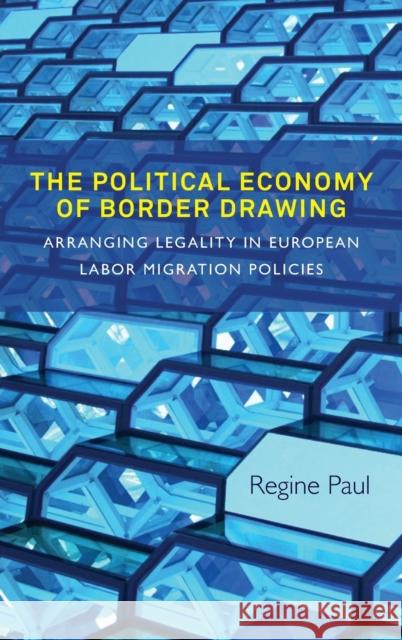The Political Economy of Border Drawing: Arranging Legality in European Labor Migration Policies » książka
The Political Economy of Border Drawing: Arranging Legality in European Labor Migration Policies
ISBN-13: 9781782385417 / Angielski / Twarda / 2015 / 244 str.
The Political Economy of Border Drawing: Arranging Legality in European Labor Migration Policies
ISBN-13: 9781782385417 / Angielski / Twarda / 2015 / 244 str.
(netto: 485,11 VAT: 5%)
Najniższa cena z 30 dni: 498,70
ok. 30 dni roboczych.
Darmowa dostawa!
"The author relates in an inspiring way how]...capitalism, the welfare regime, and citizenship relate] to migration policies, and analyzes the logics of labor migration regulations in three cases. The book makes a key contribution to the academic debate by pointing light on the normative basis of migration policies and the seeming contradictions between the logics of migrant admissions." - Lisa-Marie Heimeshoff, University of Kassel "This is one the most innovative books on labor migration I have read in a decade. Regine Paul's precise mastery of, among others, comparative political economy and rigorous constructivist sociology allows her to go beyond traditional accounts of labor migration policy.... This]book is a wake-up call for political economists, who too often take notions such as skills, shortage or legality for granted instead of studying them as objects of political struggles and stakes in contested boundary-making processes." - Sebastien Chauvin, University of Amsterdam The conditions for non-EU migrant workers to gain legal entry to Britain, France, and Germany are at the same time similar and quite different. To explain this variation this book compares the fine-grained legal categories for migrant workers in each country, and examines the interaction of economic, social, and cultural rationales in determining migrant legality. Rather than investigating the failure of borders to keep unauthorized migrants out, the author highlights the different policies of each country as "border-drawing" actions. Policymakers draw lines between different migrant groups, and between migrants and citizens, through considerations of both their economic utility and skills, but also their places of origin and prospects for social integration. Overall, migrant worker legality is arranged against the backdrop of the specific vision each country has of itself in an economically competitive, globalized world with rapidly changing welfare and citizenship models. Regine Paul is a postdoc scholar with the HowSAFE project on comparative risk regulation at the University of Bielefeld. She has published a number of scholarly articles and contributed to edited volumes on migration and mobility policies in Europe. She is also board member of the research network "European Integration and the Global Political Economy" at the Council for European Studies.
"The author relates in an inspiring way [how]...capitalism, the welfare regime, and citizenship [relate] to migration policies, and analyzes the logics of labor migration regulations in three cases. The book makes a key contribution to the academic debate by pointing light on the normative basis of migration policies and the seeming contradictions between the logics of migrant admissions." · Lisa-Marie Heimeshoff, University of Kassel"This is one the most innovative books on labor migration I have read in a decade. Regine Pauls precise mastery of, among others, comparative political economy and rigorous constructivist sociology allows her to go beyond traditional accounts of labor migration policy....[This]book is a wake-up call for political economists, who too often take notions such as skills, shortage or legality for granted instead of studying them as objects of political struggles and stakes in contested boundary-making processes." · Sébastien Chauvin, University of AmsterdamThe conditions for non-EU migrant workers to gain legal entry to Britain, France, and Germany are at the same time similar and quite different. To explain this variation this book compares the fine-grained legal categories for migrant workers in each country, and examines the interaction of economic, social, and cultural rationales in determining migrant legality. Rather than investigating the failure of borders to keep unauthorized migrants out, the author highlights the different policies of each country as "border-drawing" actions. Policymakers draw lines between different migrant groups, and between migrants and citizens, through considerations of both their economic utility and skills, but also their places of origin and prospects for social integration. Overall, migrant worker legality is arranged against the backdrop of the specific vision each country has of itself in an economically competitive, globalized world with rapidly changing welfare and citizenship models.Regine Paul is a postdoc scholar with the HowSAFE project on comparative risk regulation at the University of Bielefeld. She has published a number of scholarly articles and contributed to edited volumes on migration and mobility policies in Europe. She is also board member of the research network "European Integration and the Global Political Economy" at the Council for European Studies.











